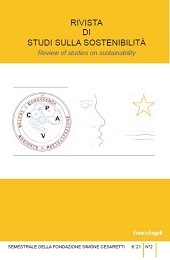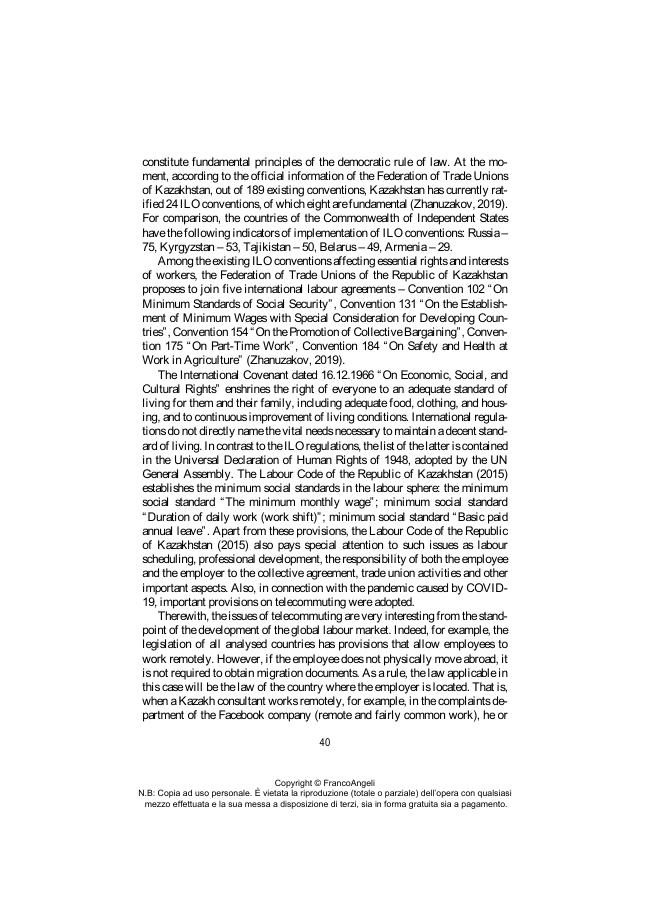The role of international standards in improving labour law of the Republic of Kazakhstan to ensure the well-being of society
P. 33-47
The striving of the Republic of Kazakhstan for international integration and entry into influential international structures is impossible without the introduction of advanced experience in the field of labour law. Therewith, the labour law of each country is a unique and very broad branch of law; therefore, for the purposes of this study, such parameters as wages, provisions on weekends and holidays, as well as the issue of concluding and terminating an employment contract as the most fundamental labour law issues. To achieve the objectives of the study, the comparative method is used as the main one, both in horizontal and vertical as-pects. At the same time, the classical inductive method is used to formulate many provisions as an addition.
For comparison, the authors of the study take the expe-rience of the United States, Russia, and China as the main trading partners of Ka-zakhstan, relations with which are of decisive importance for the country. From the stated provisions, it was concluded that the labour law of the Republic of Ka-zakhstan is quite progressive, although they need to be adjusted. Among the ana-lysed provisions, first of all, it is necessary to correct the size of the minimum wage, as the most important economic and legal indicator, and also to consider the pos-sibility of extending the minimum paid leave from 24 to 28 days. Therewith, the provisions on a written employment contract and the protection of employees from unjustified dismissal are quite progressive.[Publisher's text]
-
Articles from the same issue (available individually)
-
Information
ISSN: 2239-1959
KEYWORDS
- Labour legislation, legal comparative studies, contract, minimum wage, vacation period



